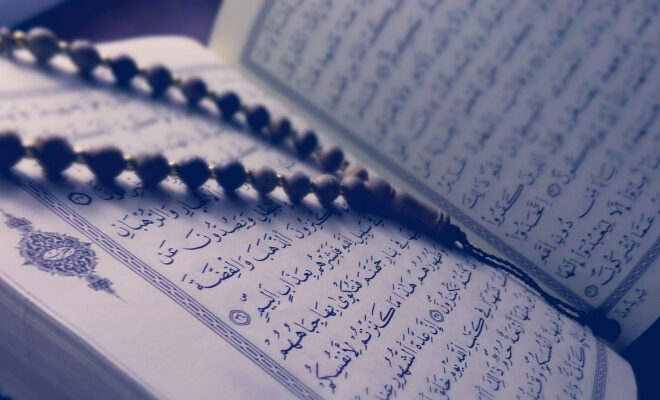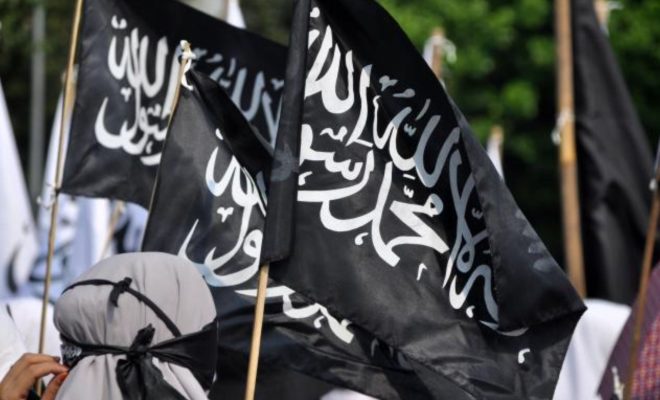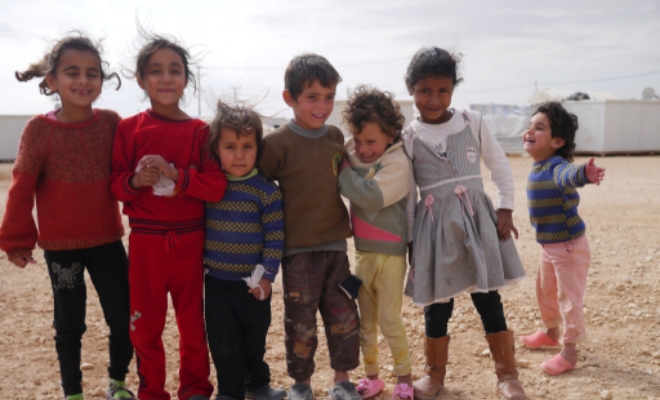How Do We Secure Ourselves?

It is our human instinct to look for security. Having a secure place to live, accessing stable work, growing wealth, and being surrounded by friends and loved ones are all forms of security. This is part of our survival instinct. So, what is the Islamic perspective on security?
They who believe and do not mix their belief with injustice – those will have security, and they are [rightly] guided.
Quran [6:82]
Then, do those who have planned evil deeds feel secure that Allah will not cause the earth to swallow them or that the punishment will not come upon them from where they do not perceive?
Quran [16:45]
The above verses are clear in that Allah (swt) is the one that gives and takes security. He gives security to those who obey him and takes it away from those who disobey him.
In other words, our security is in obeying Allah (swt) and our destruction is in disobeying Him. How can it be any other way when Allah (swt) is the All-Knowing and All Capable? Who could protect us from Allah (swt) if he wanted to harm us? Who could harm us if Allah (swt) wanted to protect us?
Say, “Who is it that can protect you from Allah if He intends for you an ill or intends for you a mercy?” And they will not find for themselves besides Allah any protector nor any helper.
Quran [33:17]
Trusting in Allah and Taking Precautions
One may wonder, if security is from Allah (swt), then what is the point of seeking secure places, stable jobs, or wealth? Why do we need to take precautions in dangerous situations? The answer to this question lies in the fact that Islam is a balanced religion. Allah (swt) obligated us to work in this life and take all the permissible means necessary to achieve goals. At the same time, he obligated us to put our trust in Him and have absolute belief that nothing can harm or benefit us except by His will. Thus, we must live our lives to seek the pleasure of Allah (swt) while putting our trust in Him. We must work to fulfil the obligations of Allah (swt) even if they are surrounded by dangers. We must also not develop a false sense of security if we live in a state of security. This apparent danger or apparent security is a trial from Allah (swt) to test our obedience.
This is evident in many stories in the Quran. The story of Qarun whom Allah (swt) destroyed when he attributed his wealth to himself and not to Allah (swt) is an example of having a false sense of security. Also, the story of the believer from amongst Pharaoh’s entourage, whom Allah (swt) saved from Pharaoh after he spoke the word of truth is an example of the protection of Allah (swt). Thus, we must work to fulfill the obligations of Allah (swt) even if we expose ourselves to danger. We must take precautions, but not to the point of preventing us from fulfilling our obligations. We must do all this while putting our trust in Allah (swt) that He will protect us and that nothing will befall us except if He wills.
Life is a Test
Part of our trial in this life is that Allah (swt) doesn’t hasten His punishment. This may lead some to falsely believe that they are secure despite living a life that displeases Allah (swt). They may commit sins while thinking that they are not a serious issue. This is extremely dangerous. It is like someone living in a high tower with unstable foundations that may collapse at any moment. Allah (swt) clears this misconception in the following verse.
And never think that Allah is unaware of what the wrongdoers do. He only delays them [i.e., their account] for a Day when eyes will stare [in horror].
Quran [14:42]
One may also ask why did Allah (swt) not protect some of His righteous servants like some of his prophets who were killed by their people or those believers who were thrown in the fire? It is vital to understand that the protection of Allah (swt) does not mean that His righteous servants will not go through hardships. This life is a trial and Allah (swt) makes us endure tribulations to test our obedience.
It was narrated from Mus’ab bin Sa’d that his father, Sa’d bin Abu Waqqas, said:
“I said: ‘O Messenger of Allah, which people are most severely tested?’ He said: ‘The Prophets, then the next best and the next best. A person is tested according to his religious commitment. If he is steadfast in his religious commitment, he will be tested more severely, and if he is frail in his religious commitment, his test will be according to his commitment. Trials will continue to afflict a person until they leave him walking on the earth with no sin on him.’” [Sunan Ibn Majah]
We must also be certain that running away from the obligations of Allah (swt) will not avail us from the hardships that will befall us. This is because Allah (swt) has decreed certain things upon us, whether ease or hardship, that we will certainly experience.
Those who said about their brothers while sitting [at home], “If they had obeyed us, they would not have been killed.” Say, “Then prevent death from yourselves, if you should be truthful.”
Quran [3:168]
It is reported that Ali (ra) said”
“there is no good in any good that leads to hellfire and there is no harm in any harm that leads to paradise”.
This means that there is no benefit in anything we perceive to be beneficial if it will lead us to hellfire. Also, there is no harm in anything we perceive to be harmful if it will lead us to paradise. For example, someone may deal in riba (interest) based transactions thinking that this will enrich him, or someone may avoid speaking the word truth thinking that this may prevent his harm, both of which are not true.
Security Beyond the Dunya
We must expand our concept of security beyond this life and into the hereafter. For the hereafter is the real life that will last forever. Our security will never be complete until we step foot into paradise. A Muslim who understands security from an Islamic perspective will be a strong Muslim who works to seek the pleasure of Allah (swt) by taking all the permissible means to achieve their goals while putting their trust in Allah (swt) that He will protect them.
They know that nothing will befall them except with the will of Allah (swt). They know that their destruction is in disobeying Allah (swt) and that they are not safer if they leave their obligations, even if they are surrounded by dangers.
They become like a brave warrior in a battlefield, never putting their guard down. They do not feel safe because of their achievements and do not become consumed by this world. They become truly secure and feel secure.
Finally, we must fear Allah in a matter worth of his majesty. This will drive us to Obey Allah (swt) even when we have fears and perceive danger. We must strive to be like Prophet Ibrahim (as) when he told his people “How can I fear what you associated as gods with Allah? And you do not fear that you have associated gods with Allah? Which one of us is more worth of security if you truly knew?”









